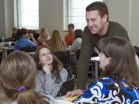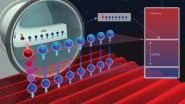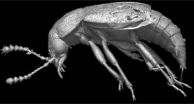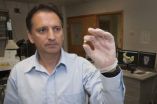(Press-News.org) There's sad news in the study of happiness.
Rest assured, there is a happy ending, though.
University of Cincinnati research on perceived happiness shows that many college students are stressed out and aren't coping.
This is despite the fact that there are simple ways for students to relieve stress and feel happier, says Keith King, professor and coordinator of UC's Health Promotion and Education Program. The trouble is, they don't use them enough.
"We have a whole array of different stress-management techniques college students can use and that we teach, but they're not using them. That contributes to their stress levels, which contributes to their unhappiness," King says.
The research led by King, "A Study of Stress, Social Support, and Perceived Happiness Among College Students," was recently published in the Journal of Happiness & Well-Being, an online international peer-reviewed journal.
King says many simple and effective techniques exist for managing stress. He suggests a few immediate and long-term methods for soothing frayed nerves.
IMMEDIATE ACTIONS
Stop, pause and breathe: "In the moment when you're stressed, you need to slow down, you pause, you take some deep breaths. Maybe you count backwards from 10. Those types of things calm everything down and slow it down."
See the bigger picture: "Try to see the bigger picture. Is what you're experiencing really that big of a deal or not?"
Contact a friend: "Everyone has phones on them. Call your buddy and let him know what's going on so you can express those feelings and get them off you as quickly as possible."
LONG-TERM ACTIONS
Diet and exercise: "People who eat healthy and exercise tend to have lower stress levels. Exercise allows for some of that negative energy to get burned off. Eating healthy helps individuals avoid feeling weighted down."
Daily "me time": "Take time out of the day that's your time. It could be just 10 minutes. Go outside and walk, just enjoy something for you. If you hate exercising, then do something you enjoy. That's paramount."
Remember to H.A.L.T.: "Make sure you're not Hungry, you're not Angry, you're not Lonely and you're not Tired. If you can take care of those four things, you're significantly more likely to be unstressed."
King and fellow UC researchers Ashley Merianos, Rebecca Vidourek and Meha Singh based their study on an anonymous, voluntary survey taken by 498 students assessing their overall happiness and stress level. Results showed that students who reported low perceived happiness felt higher stress levels and lower emotional closeness to others. Many reported they felt stressed but weren't doing anything about it: 61 percent reported having high stress and 72 percent reported low frequency in using stress-management techniques.
King notes that people tend to over-complicate their lives and to ignore the potential benefit a five-minute walk outside or a quick water break could have on their emotional state. Just because these techniques are simple, he says, doesn't mean they are ineffective.
"It's not rocket science, but the reality of it is a lot of people aren't doing the positive to get happy. People don't really know or they think some of the basics to happiness that we suggest are too fluffy. They're not. They're research-supported. Do these things and you'll feel happier," King says.
It's something he says everyone could benefit from.
"This study is looking at college students, but it is generalizable to all people. We recommend the students take this information and share it with their families. Let them know if they want to be happier, they need to focus on reducing their stress and get some social support and care."
INFORMATION: END
Simple tips to fend off freak-outs
A UC study reports that college students have difficulty managing their stress; the researcher offers ways to find your happy place
2014-07-31
ELSE PRESS RELEASES FROM THIS DATE:
New report calls for strong, positive safety culture in academic chemical labs
2014-07-31
WASHINGTON -- Everyone involved in the academic chemical research enterprise -- from researchers and principal investigators to university leadership -- has an important role to play in establishing and promoting a strong, positive safety culture, says a new report from the National Research Council. This requires a constant commitment to safety organization-wide and emphasis on identifying and solving problems, rather than merely adhering to a set of rules and assigning blame when those rules are not followed.
Chemical hazards can be found in many academic fields ...
Spin diagnostics
2014-07-31
Magnetic resonance imaging (MRI), which is the medical application of nuclear magnetic resonance spectroscopy, is a powerful diagnostic tool. MRI works by resonantly exciting hydrogen atoms and measuring the relaxation time -- different materials return to equilibrium at different rates; this is how contrast develops (i.e. between soft and hard tissue). By comparing the measurements to a known spectrum of relaxation times, medical professionals can determine whether the imaged tissue is muscle, bone, or even a cancerous growth. At its heart, MRI operates by quantum principles, ...
Pressure probing potential photoelectronic manufacturing compound
2014-07-31
Washington, D.C.— Molybdenum disulfide is a compound often used in dry lubricants and in petroleum refining. Its semiconducting ability and similarity to the carbon-based graphene makes molybdenum disulfide of interest to scientists as a possible candidate for use in the manufacture of electronics, particularly photoelectronics.
New work from a team including several Carnegie scientists reveals that molybdenum disulfide becomes metallic under intense pressure. It is published in Physical Review Letters.
Molybdenum disulfide crystalizes in a layered structure, with ...
Oldest rove beetle in the Omaliini tribe found in French amber
2014-07-31
An international team of scientists from Spain, France, and the U.S. has discovered and described a rove beetle that is the oldest definitive member of the tribe Omaliini that has ever been found in amber. The discovery and description were made possible through the use of the propagation phase-contrast X-ray synchrotron imaging technique, which allows the detailed study of otherwise invisible specimens in opaque amber. The new species is described in the journal Annals of the Entomological Society of America in an article called "Oldest Omaliini (Coleoptera: Staphylinidae: ...
Free pores for molecule transport
2014-07-31
This news release is available in German.
Metal-organic frameworks (MOFs) can take up gases similar to a sponge that soaks up liquids. Hence, these highly porous materials are suited for storing hydrogen or greenhouse gases. However, loading of many MOFs is inhibited by barriers. Scien-tists of Karlsruhe Institute of Technology (KIT) now report in Nature Communications that the barriers are caused by cor-rosion of the MOF surface. This can be prevented by water-free synthesis and storing strategies.
MOFs are crystalline materials consisting of metallic nodes ...
Scientists shine bright new light on how living things capture energy from the sun
2014-07-31
Since Alexandre Edmond Becquerel first discovered the photovoltaic effect in 1839, humankind has sought to further understand and harness the power of sunlight for its own purposes. In a new research report published in the August 2014 issue of the FASEB Journal, scientists may have uncovered a new method of exploiting the power of sunlight by focusing on a naturally occurring combination of lipids that have been strikingly conserved throughout evolution. This conservation—or persistence over time and across species—suggests that this specific natural combination of lipids ...
Misinformation diffusing online
2014-07-31
The spread of misinformation through online social networks is becoming an increasingly worrying problem. Researchers in India have now modeled how such fictions and diffuse through those networks. They described details of their research and the taxonomy that could help those who run, regulate and use online social networks better understand how to slow or even prevent the spread of misinformation to the wider public.
Krishna Kumar and G. Geethakumari of the Department of Computer Science and Information Systems, at BITS-Pilani, Hyderabad Campus, in Andhra Pradesh, India, ...
Lead in teeth can tell a body's tale, UF study finds
2014-07-31
GAINESVILLE, Fla. – Your teeth can tell stories about you, and not just that you always forget to floss.
A study led by University of Florida geology researcher George D. Kamenov showed that trace amounts of lead in modern and historical human teeth can give clues about where they came from. The paper will be published in the August issue of Science of The Total Environment.
The discovery could help police solve cold cases, Kamenov said. For instance, if an unidentified decomposed body is found, testing the lead in the teeth could immediately help focus the investigation ...
Scientists discover biochemical mechanisms contributing to fibromuscular dysplasia
2014-07-31
An important step has been made to help better identify and treat those with fibromuscular dysplasia (FMD). FMD causes both an abnormal narrowing and enlarging of medium sized arteries in the body, which can restrict blood flow to the kidneys and other organs causing damage. In a new report appearing in August 2014 issue of The FASEB Journal, scientists provide evidence that that FMD may not be limited to the arteries as currently believed. In addition, they show a connection to abnormalities of bones and joints, as well as evidence that inflammation may be driving the ...
New paper describes how DNA avoids damage from UV light
2014-07-31
BOZEMAN, Mont. – In the same week that the U.S. surgeon general issued a 101-page report about the dangers of skin cancer, researchers at Montana State University published a paper breaking new ground on how DNA – the genetic code in every cell – responds when exposed to ultraviolet (UV) light.
The findings advance fundamental understanding of DNA damage by the UV rays found in sunlight. This damage can lead to skin cancer, aging and some degenerative eye diseases.
"Our paper advances foundational knowledge about how DNA responds to UV radiation. In our experiments, ...
LAST 30 PRESS RELEASES:
$3 million NIH grant funds national study of Medicare Advantage’s benefit expansion into social supports
Amplified Sciences achieves CAP accreditation for cutting-edge diagnostic lab
Fred Hutch announces 12 recipients of the annual Harold M. Weintraub Graduate Student Award
Native forest litter helps rebuild soil life in post-mining landscapes
Mountain soils in arid regions may emit more greenhouse gas as climate shifts, new study finds
Pairing biochar with other soil amendments could unlock stronger gains in soil health
Why do we get a skip in our step when we’re happy? Thank dopamine
UC Irvine scientists uncover cellular mechanism behind muscle repair
Platform to map living brain noninvasively takes next big step
Stress-testing the Cascadia Subduction Zone reveals variability that could impact how earthquakes spread
We may be underestimating the true carbon cost of northern wildfires
Blood test predicts which bladder cancer patients may safely skip surgery
Kennesaw State's Vijay Anand honored as National Academy of Inventors Senior Member
Recovery from whaling reveals the role of age in Humpback reproduction
Can the canny tick help prevent disease like MS and cancer?
Newcomer children show lower rates of emergency department use for non‑urgent conditions, study finds
Cognitive and neuropsychiatric function in former American football players
From trash to climate tech: rubber gloves find new life as carbon capturers materials
A step towards needed treatments for hantaviruses in new molecular map
Boys are more motivated, while girls are more compassionate?
Study identifies opposing roles for IL6 and IL6R in long-term mortality
AI accurately spots medical disorder from privacy-conscious hand images
Transient Pauli blocking for broadband ultrafast optical switching
Political polarization can spur CO2 emissions, stymie climate action
Researchers develop new strategy for improving inverted perovskite solar cells
Yes! The role of YAP and CTGF as potential therapeutic targets for preventing severe liver disease
Pancreatic cancer may begin hiding from the immune system earlier than we thought
Robotic wing inspired by nature delivers leap in underwater stability
A clinical reveals that aniridia causes a progressive loss of corneal sensitivity
Fossil amber reveals the secret lives of Cretaceous ants
[Press-News.org] Simple tips to fend off freak-outsA UC study reports that college students have difficulty managing their stress; the researcher offers ways to find your happy place





